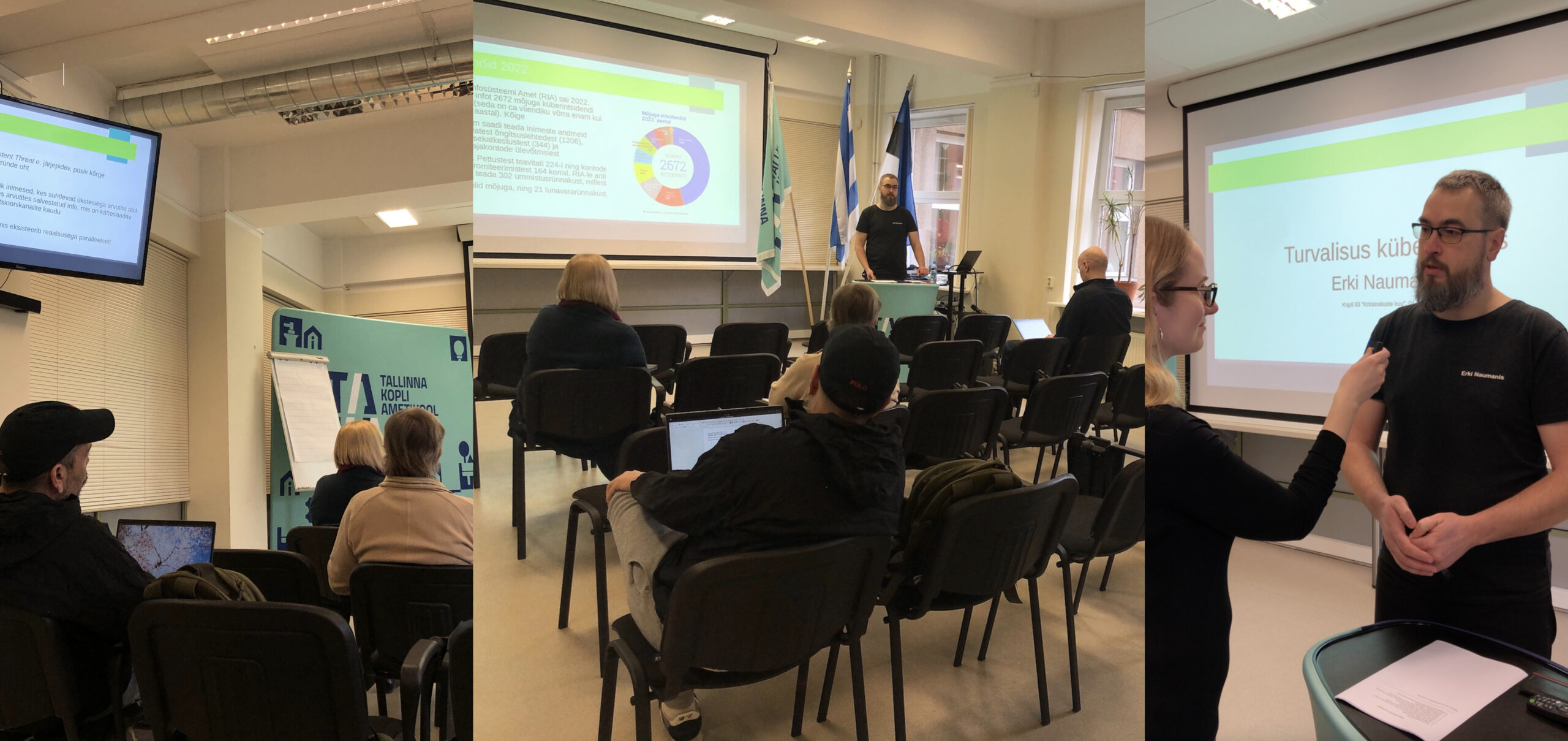
Community members received security in cyberspace training during Crisis Skills Month
Why should anyone bother to fish for personal data and how wise is it to send cash via Omniva parcel machine? How can you ensure that your smart device serves as a tool rather than a nuisance? In order to strategically improve each person’s civil defence capacities in the Kopli 93 community, answers to these and numerous more issues were sought out throughout the cybersecurity training.
Participants in the Kopli 93 project’s second two-day training session acquired a thorough awareness of cyberspace security, which is vulnerable to several threats from both outside sources and their own irresponsible actions. Erki Naumanis, the trainer, provided multiple instances of how to configure your smart device so that you can use it safely and don’t jeopardise your private information. For instance, you should avoid using public Wi-Fi networks (unless absolutely necessary) and avoid using a USB charger in an unfamiliar location without an adaptor because it may provide access to your smart device.
A spirited conversation among the attendees was sparked by the topic of data protection issues, including the Apotheka case, and different cybercrimes that pose the greatest threat to Estonians. Erki also concentrated on the history of the scam letters, describing with examples how they have changed over time and are now able to appear increasingly genuine because of artificial intelligence’s capabilities.
Erki Naumanis, the trainer, also gave to the participants personalised feedback on the security features of their smart gadgets and on their behavioural patterns, which inspired some to alter. We are grateful to Erki Naumanis for leading the Kopli 93 civil defence project’s security in cyberspace training.
Jaga postitust:
